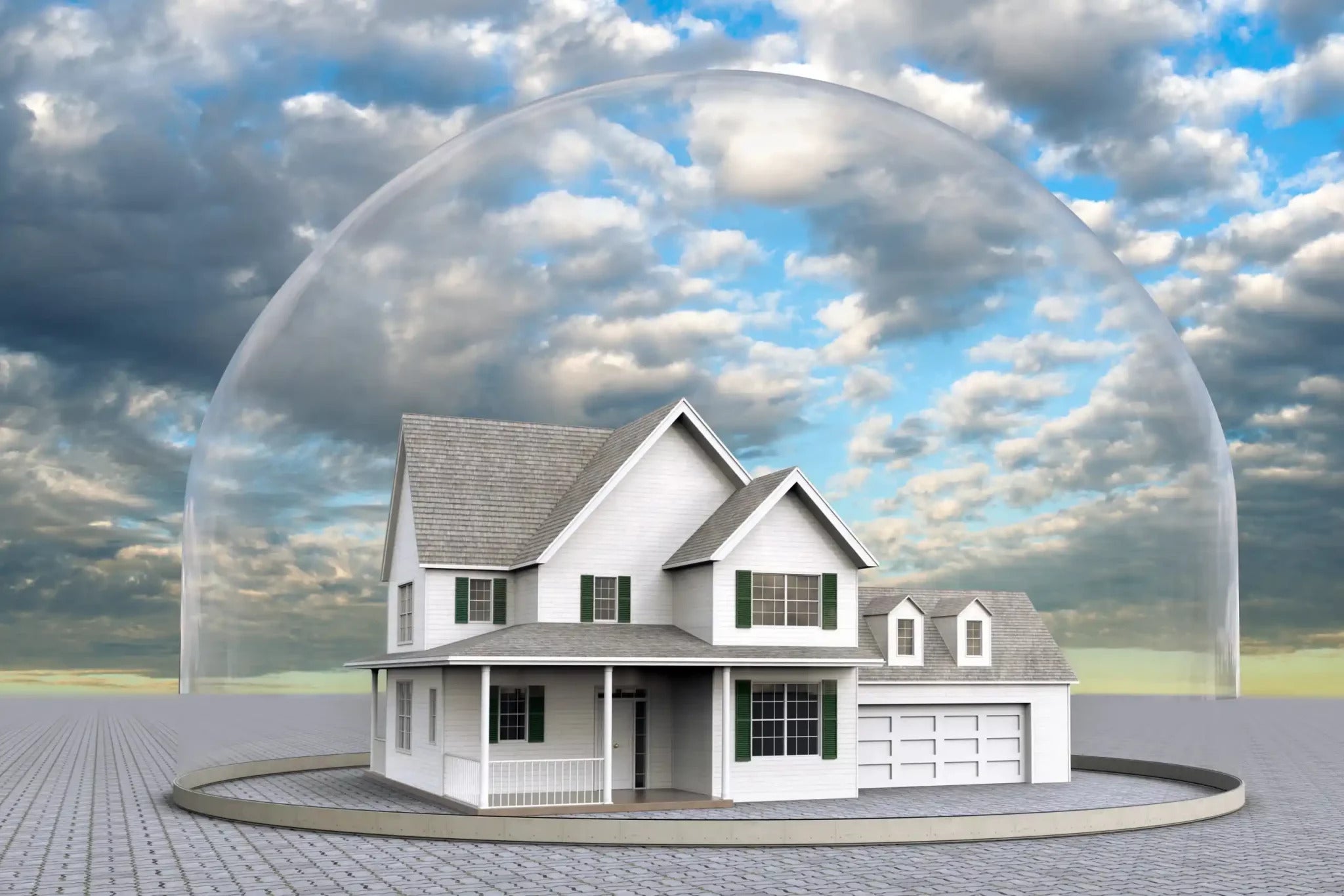Although interest rates are starting to rise, the housing market is holding strong. Over the past year, home prices have risen more than 19%, and they aren’t expected to drop this year.
And while the bidding wars are less intense than they were in 2021, many buyers are still finding the home buying process a challenge. Buyers may not have to resort to all-cash offers or waiving contingencies, but it’s still a seller’s market.
It may be a good time to sell your home, but some economists worry that the hot housing market could spell trouble. According to a Realtor.com economist, we could be headed toward another housing bubble.
Are we headed for another housing bubble?
Last week, Realtor.com published an article questioning whether the U.S. is headed toward a housing bubble. According to housing economist George Ratiu, it’s a real possibility.
“We’re not in a housing bubble just yet—but we’re skating close to one if prices continue rising at the current pace,” Ratiu explains.
When the pandemic hit, mortgage rates fell to historically low levels — sometimes as low as 2% or 3%. Because of the low interest rates, it was easier for borrowers to afford higher-priced homes.
But now interest rates are starting to go up — the Fed has already done one rate hike and is expected to do six more in 2022. As interest rates rise, many homebuyers will start to get priced out of the market.
This is where there’s the potential for a housing bubble — if mortgage rates continue to rise, home sales and prices will start to drop accordingly. Ratiu believes we’ll see prices begin to fall between 5% and 15%, depending on the local market.
When will prices begin to drop?
Ratiu did say that he doesn’t expect that we’re headed for a market crash or sudden rise in foreclosures. We’ll likely see a correction rather than a bust — corrections happen slowly over time as the market starts to cool off.
In comparison, a housing bust is an immediate drop that affects the entire country at once. Dallas Fed researchers agree that a bust is unlikely, stating, “Among other things, household balance sheets appear in better shape, and excessive borrowing doesn’t appear to be fueling the housing market boom.”
Homebuyers are better off financially than they were in 2008 and spend much less of their disposable income on their mortgages. And thanks to the 2010 Dodd-Frank Act, subprime mortgages aren’t the problem they used to be.
But homebuyers looking for relief shouldn’t expect to see a drop in prices immediately. It’ll take time to see the full impact of rising interest rates, and many buyers will rush to purchase homes before rates go up even more.
Greg McBride, the chief financial analyst at Bankrate.com, believes housing prices will stay steady for awhile. With more buyers than there are homes to sell, McBride believes that it’s unlikely prices will fall.
He says buyers and investors who can afford higher mortgage payments will keep the market strong for the time being. The problem is those homeowners will be paying hundreds of dollars more each month for their mortgage.
Disclaimer: The information and insights in this article are provided for informational purposes only, and do not constitute financial, legal, tax, business or personal advice from National Business Capital and the author. Do not rely on this information as advice and please consult with your financial advisor, accountant and/or attorney before making any decisions. If you rely solely on this information it is at your own risk. The information is true and accurate to the best of our knowledge, but there may be errors, omissions, or mistakes.

